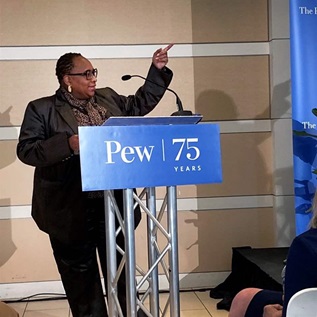More Minorities Consider Adopting Children, Poll Shows
An ABC News/Time national poll on foster care issues showed 31 percent of non-Whites surveyed answered "Yes," when asked, "Would you seriously consider becoming a foster parent or adopting a foster child, or not?" compared to 19 percent of Whites.
The survey result underscored the belief that cultural backgrounds have an impact on attitudes about foster care. Terry L. Cross, executive director of the National Indian Child Welfare Association (NICWA), said, "Cultural norms, including sustaining strong extended families, handing down of culture and traditions, and establishing a positive identity, contribute to perceptions of our foster care system and notions of your place within that system. What is missing from the survey is how many people would support 'kinship care,' or relative care, over foster care placements in a stranger's home."
Kinship care is considered by most to be a cultural norm of Indian Country. When a family has problems, extended family members step in to help, and often that means assuming the caretaking responsibilities for children. So, given a choice of a child being removed from a home due to maltreatment and being placed in a licensed foster home with strangers in a new community, according to Cross, it appears most Indians will choose informal kinship care arrangements, even if it means little financial support for the kinship caregivers.
National child welfare advocates such as NICWA point to secure and flexible funding as a needed reform to better the foster care system for all the nation's children. Concepts such as kinship care are an alternative to the standard child removal from a home, which too often leads to the permanent termination of parental rights. Today, such practice is funded with significant difficulty due to tight restrictions on the federal funding for the tribal programs that can gain access to it.
NICWA, along with other reform advocates, is working to correct anomalies in the current system that excludes American Indian children under the custody of tribal courts from receiving the benefits and protections currently available to all other children. The nonpartisan Pew Commission on Children in Foster Care has recommended providing tribes with this kind of federal child welfare funding, as well as other comprehensive child welfare finance reforms.











